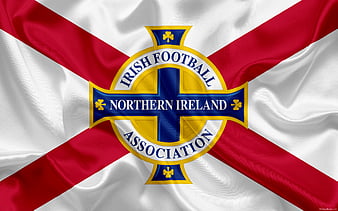Northern Ireland FC is more than just a football team; it symbolizes the heart, pride, and resilience of a nation with a deep-rooted passion for the beautiful game. Over the decades, this team has showcased moments of immense talent, perseverance through political and social upheavals, and the unwavering support of its loyal fans. The story of Northern Ireland FC is not only about its sporting achievements but also about how football became an emblem of unity and hope within communities. This article aims to provide a comprehensive look at Northern Ireland FC’s development, pivotal moments, and the players and supporters who have shaped its enduring legacy.
Origins and Early Development of Northern Ireland FC
To fully understand the significance of Northern Ireland FC, we must start by exploring its origins and foundational years. This period laid the groundwork for what would become one of the most resilient teams on the international stage, often exceeding expectations against formidable opponents. From humble beginnings, Northern Ireland FC evolved during a complex era marked by socio-political tensions, yet football remained a uniting force that brought people together https://goidooi.com/.
Formation of the National Team
Northern Ireland FC traces its roots back to the late 19th century when football was gaining popularity across the British Isles.
In 1880, the Irish Football Association (IFA) was founded, making it the fourth oldest national football association in the world. Initially, the team represented the whole island of Ireland. However, after the partition in 1921, the national team split, leading to the distinct identity of Northern Ireland FC as separate from the Republic of Ireland.
Those early years were challenging. Infrastructure was limited, and political tensions often overshadowed sporting events. Despite this, the establishment of the IFA provided a structured approach to football governance, enabling gradual improvements in organization and competitiveness. Matches against England, Scotland, and Wales in the Home Nations Championship helped develop the team’s identity, fostering a spirit of resilience.
The formative years set a precedent for determination amidst adversity. Northern Ireland FC began carving out a unique narrative—one that combined the artistry of football with raw grit. These qualities would later become the team’s hallmark on the international stage.
Looking back, the foundational period of Northern Ireland FC exemplifies how sport can rise above political complexities, serving as an arena where national identity and pride are fiercely expressed yet inclusively celebrated.
Challenges During the Partition Era
The political and social ramifications of Ireland’s partition in 1921 had profound effects on football.
Suddenly, the question arose: which team truly represented the entire island? Both Northern Ireland FC (under the IFA) and what became the Republic of Ireland’s team claimed jurisdiction over Irish football, causing confusion and FIFA intervention.
The dual claims led to disputes, particularly regarding player eligibility. Some athletes found themselves courted by both associations. This tug-of-war created uncertainty but also highlighted the sheer talent emanating from the small island. Eventually, FIFA recognized them as separate entities in the 1950s, cementing Northern Ireland FC’s independent identity.
This period tested not only the administrative fortitude of Northern Ireland FC but also its sense of self. Navigating these challenges forged a stronger, singular identity rooted in resilience. The team emerged from this turmoil more unified, symbolizing the collective hopes of Northern Ireland’s diverse communities.
Historically, these struggles were critical in shaping the team’s ethos. They embedded a fighting spirit that would come to define Northern Ireland FC’s approach to international competitions for generations to follow.
Growth of Domestic Football Infrastructure
While the national team navigated complex political realities, domestic football in Northern Ireland also underwent significant development.
Local clubs like Linfield, Glentoran, and Crusaders contributed immensely to nurturing homegrown talent. Their fierce rivalries fueled popular interest in football and helped sustain community engagement despite wider societal divisions.
Moreover, grassroots initiatives became instrumental in promoting youth participation. Academies sprouted amid urban centers and rural towns alike, fostering inclusivity and offering young players pathways to professional careers. Many future Northern Ireland FC stars honed their skills in these local settings before advancing to bigger stages.
Investment in facilities and coaching standards further strengthened the football ecosystem. The resulting pipeline of talent ensured Northern Ireland FC maintained a steady influx of committed, technically proficient players ready to represent their country with pride.
Reflecting on this growth reveals how vital domestic infrastructure is to a national team’s success. It shows that behind every great squad lies a network of passionate coaches, administrators, and volunteers united by a love for the game.
First Forays into International Competition
Armed with an independent identity and growing talent base, Northern Ireland FC began making its mark internationally.
Initially participating primarily in the British Home Championship, the team quickly proved it could hold its own against neighboring heavyweights. Series wins and memorable upsets bolstered national pride and indicated potential for broader success.
Notably, Northern Ireland FC made its FIFA World Cup debut in 1958, stunning many by advancing to the quarter-finals—a milestone that cemented the nation’s place on the global football map. This performance inspired future generations and demonstrated that even smaller nations could compete with the world’s elite.
These early international exploits were crucial. They validated the efforts invested since the team’s inception and energized fans who saw their underdog heroes defy the odds on prominent stages.
In sum, the early decades of Northern Ireland FC were characterized by overcoming adversity, both political and sporting. The foundations built during this time enabled the team to embark on an inspiring journey filled with historic moments and enduring achievements.
